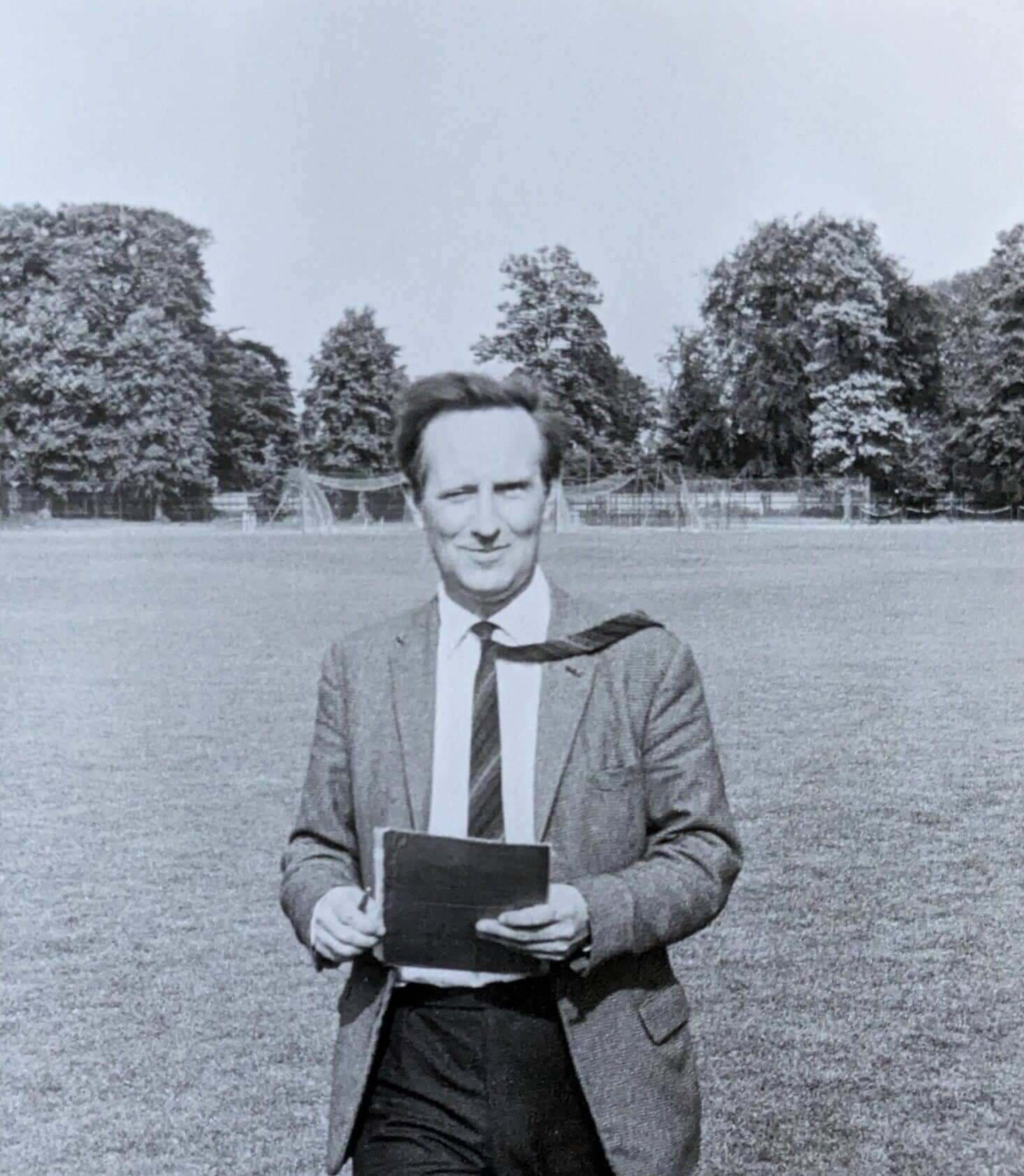Colin Wilcockson
Common Room, 1959-72
Colin was born in 1932 in Leytonstone and brought up in Loughton, Essex. From his bedroom window he could see Epping Forest. His father, George, worked for Lloyds Bank at the head office in London and his mother, Hilda, tended to him and his two elder sisters, Joan and Beryl (Bee). He attended Chigwell School where he became head boy. He was much inspired by the Welsh chaplain Parry Davenport and that, combined with evacuation during the war to his uncle in Brecon, sealed his love of all things Welsh. Fittingly he died on St David’s Day.
From Chigwell he went up to study English Literature at Merton College, Oxford where he was made a Choral Exhibitioner and sung regularly in the college chapel choir. Music, especially Mozart and Haydn were very important to him, and we three sons have benefitted enormously from his love of music. He played the trumpet in various university groups, but it was his academic love of medieval literature, in particular, which he pursued.
After finals he toyed with the idea of staying on to do a doctorate, but his mother felt it was time he did something useful, so he was allowed to complete a fourth year doing the Diploma in Education. His old headmaster at Chigwell, Dr Thompson, was now Head Master of Harrow School and invited Colin to do his teaching practice term at Harrow; his vocation as a teacher never left him.
From Oxford, Colin went to teach English and some O Level Latin at Campbell College, Belfast. Shortly afterwards he married Pam and after four years they (including baby Michael) moved to The Leys in 1959. Colin found a kindred academic spirit in the Headmaster, Alan Barker, who appointed him Head of English (Senior English Master as it was termed then) and later, additionally, Deputy Headmaster. He was an officer in the CCF and had very fond memories of going on CCF camps with Stan Whitehead and David Gardener, but his particular interest was full-bore shooting, and he coached the 1st VIII Shooting team for many years.
Colin was an all-round schoolmaster. He gave of his time generously to all his pupils, pastorally and academically. But it was his love for English literature which absorbed him intellectually and he wanted all his pupils to feel the same whether it was the lowest Third Form set or Oxbridge high-flyers.
He taught a one-year fast track English A Level course especially designed for bright boys who might otherwise have never studied English. Christopher Hitchens was just one of many who was inspired by these lessons to go on and develop a love of words, literature and poetry.
Colin might have pursued his schoolmaster life, but in 1973 he was elected to a fellowship at Pembroke College, Cambridge. He had already informally been asked to carry out some supervisions at the college so the transition to the academic world was a natural progression. It probably helped that whilst at The Leys he had also written his first academic book, Selections from Piers Plowman (1965). His students benefitted from being taught by a don who took endless care actually to teach them and as a tutor he cared particularly for those who found the pressures of being at Cambridge stressful and daunting.
Not surprisingly given his knowledge and understanding of secondary schools he was appointed Tutor for Admissions and was instrumental in preparing the College’s admission of women undergraduates in 1983. During his time at Pembroke until his retirement he was also Director of Studies in English (as well as Anglo Saxon, Norse and Celtic).
Colin always felt an affection for The Leys; he was proud to be the Common Room’s representative Governor for many years and he enjoyed being invited back every Christmas to the Headmaster’s ‘Golden Oldies’ drinks party.
He was not a person to wear his religious beliefs on his sleeve, but when he was at The Leys we as a family regularly attended school Chapel and he loved Choral Evensong at Pembroke. But it is through his poetry that we can see his spiritual sensitivity – he won the university’s Seatonian Prize for an English poem on a sacred subject four times.
At his funeral in Pembroke College Chapel, I ended my sermon with the following stanza from his 2017 Seatonian Prize winning poem Jubilate Agno; let it stand as Colin’s epitaph:
I offer up these symbols to Christ’s bride
The Church, that holds creation in its care:
Let David be the psalmist who will guide,
For his harp sings anthems sanctified.
Words by Michael Wilcockson, West 1972-77; CR 1986-96
